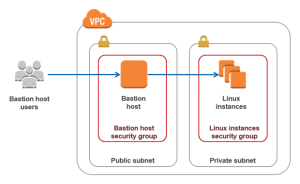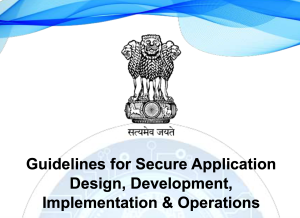
1. What steps would you take to handle a situation where you become aware of a significant mistake you made at work?
When faced with a situation where I realize I have made a serious error at work, my approach would be as follows:
Acknowledge the mistake: The first step is to accept and acknowledge the error without trying to shift blame or make excuses. Taking ownership of the mistake is crucial in order to address it effectively.
Assess the impact: I would evaluate the consequences and impact of the error on the project, team, or organization. Understanding the extent of the damage caused helps in determining the appropriate actions to rectify it.
Communicate and seek guidance: I would promptly inform my supervisor or relevant stakeholders about the mistake. Open and transparent communication is essential to ensure everyone is aware of the situation and can provide guidance or support in resolving it.
Develop a corrective action plan: After understanding the nature of the mistake and discussing it with the relevant parties, I would develop a comprehensive plan to rectify the error. This plan may involve identifying immediate steps to mitigate any negative effects and outlining a long-term strategy to prevent similar errors in the future.
Implement the corrective measures: I would execute the corrective action plan diligently, making sure to address the root cause of the mistake. This may involve collaborating with colleagues, seeking expert advice, or investing additional time and effort to rectify the error completely.
Learn from the experience: Every mistake presents an opportunity for growth and learning. I would reflect on the factors that contributed to the error and identify valuable lessons to be applied in future work. This introspection allows me to improve my skills, knowledge, and attention to detail, ultimately minimizing the likelihood of similar errors occurring again.
2. How would you respond if you were given feedback from a team leader? Receiving criticism in the workplace can be challenging, especially for individuals who are eager to improve.
However, candidates should demonstrate their ability to accept feedback, respond professionally, and take appropriate actions to enhance their performance. They can provide examples, whether hypothetical or from personal experience, where they received criticism and effectively used it to improve their work.
How would you handle receiving criticism from a team leader? While it can be challenging to accept feedback, particularly for individuals who strive for improvement, candidates should demonstrate their ability to receive criticism in a professional manner and take appropriate actions to enhance their performance. They can provide examples, either hypothetical or from their own experiences, where they received criticism and utilized it to enhance their work.
For instance, a candidate may have received feedback regarding the need to improve their proficiency in the collaboration tools utilized by their company. In response, they could describe how they proactively sought online tutorials to enhance their understanding of these software tools and dedicated time to practice and develop their skills accordingly.
3. Can you share an experience in which you surpassed expectations?
Can you describe a situation where you went above and beyond expectations? This question allows us to assess the work ethic of candidates. Look for responses that provide real examples of when applicants delivered more than what was expected of them. These examples could include conducting additional research beyond the requirements or providing assistance to colleagues who were facing deadline challenges. Pay attention to responses that demonstrate how their efforts led to exceptional outcomes.
4. Can you share an experience where you had to make a critical decision in your current or previous position?
This question aims to evaluate a candidate’s ability to handle important choices in the workplace. Please provide a specific example that demonstrates decision-making skills and the impact of choice.
5. How would you handle a situation where a coworker has upset you? This question assesses your ability to manage conflicts and maintain professionalism in the workplace.
Please describe an example from your past experience where you successfully resolved a disagreement or conflict with a coworker. Explain the steps you took to address the issue, how you communicated your concerns, and the outcome of your efforts. It’s important to highlight your conflict resolution and communication skills in your response.
6. How would you handle a situation where you are confronted by a frustrated customer? This question assesses your ability to provide excellent customer service and manage difficult interactions.
An example from your past experience where you successfully dealt with a frustrated customer. Explain the steps you took to address their concerns, how you demonstrated empathy and understanding, and the outcome of the situation. It’s important to highlight your ability to listen, communicate effectively, and find solutions to customer problems in your response.
7. How do you effectively communicate your point of view to coworkers and make them understand it? This question aims to assess your ability to persuade and influence others in the workplace.
Please share some methods or techniques you have used successfully in the past to convince coworkers to see your perspective. Explain how you tailor your approach to consider their interests and motivations, and how you use information and data to support your argument. It’s important to demonstrate your ability to communicate clearly, build rapport, and find common ground with your colleagues in order to effectively convey your point of view.
8. Can you share an experience when you were close to missing a deadline? How did you handle the situation?
This question is designed to assess your ability to manage your time effectively and handle situations where you are at risk of missing a deadline. Describe a specific instance where you found yourself in this situation and explain the steps you took to address it.
Focus on how you prioritized tasks, organized your time, and adapted your approach to ensure you met the deadline. Did you communicate with relevant stakeholders, seek support or resources if needed, or make any adjustments to your workflow? It’s important to showcase your problem-solving skills and ability to handle pressure while still delivering high-quality work within the given time frame.
9. How would you approach resolving a conflict between two team members?
It’s important to assess how candidates handle interpersonal conflicts and their ability to facilitate a resolution. Ask candidates to describe a specific scenario where they had to address a conflict between two team members.
Look for candidates who demonstrate strong communication and interpersonal skills. They should describe strategies such as encouraging open dialogue, active listening, and empathy to understand each team member’s perspective. Effective conflict resolution often involves finding common ground, facilitating compromise, and helping team members find mutually beneficial solutions.
Pay attention to candidates who prioritize maintaining a positive and collaborative work environment while also addressing the underlying issues causing the conflict. Their response should reflect their ability to mediate and bring about a resolution that fosters teamwork and productivity.
10. How would you handle a situation where a client asks you a product-related question and you’re unsure of the right answer?
It’s important for candidates to demonstrate their commitment to providing accurate information and excellent customer service, even when faced with uncertainty. When assessing their response to this scenario, look for candidates who exhibit the following qualities:
Transparency: Candidates should be honest with the client and admit that they’re unsure of the answer. It’s essential to avoid providing incorrect or misleading information.
Proactive approach: Candidates should express their willingness to help the client by offering to find the necessary information. This shows their commitment to delivering accurate and reliable responses.
Resourcefulness: Candidates should demonstrate their ability to research and gather the required information. They can suggest checking with colleagues, consulting product documentation, or reaching out to appropriate sources within the organization.
Timeliness: Candidates should promptly follow up with the client once they have obtained the accurate information. This ensures the client’s query is addressed in a timely manner.
Customer-centricity: Candidates should ask the client if there are any additional questions they can assist with, demonstrating their dedication to providing comprehensive support and ensuring customer satisfaction.
By assessing candidates’ responses based on these criteria, we can identify individuals who prioritize integrity, proactive problem-solving, and customer-centricity in their approach to handling client inquiries.
11. How would you handle a situation where you made a mistake at work, but no one noticed?
This question is designed to assess candidates’ integrity, accountability, and commitment to maintaining high standards of work, even in the absence of immediate oversight. When evaluating candidates’ responses, consider the following factors:
Honesty and self-awareness: Look for candidates who acknowledge their mistake and demonstrate self-awareness by recognizing that errors can occur, regardless of whether they are immediately noticed by others.
Taking ownership: Candidates should emphasize their commitment to taking responsibility for their actions. They should express a willingness to rectify the mistake, regardless of whether it has been detected by others.
Corrective action: Assess candidates’ problem-solving skills by evaluating the steps they would take to rectify the mistake. This may involve reviewing their work, seeking feedback or guidance from colleagues, or implementing preventive measures to avoid similar errors in the future.
Continuous improvement mindset: Look for candidates who view mistakes as learning opportunities. They should express a desire to learn from the experience and grow professionally.
It’s important to avoid candidates who deny making mistakes or display a lack of accountability. Instead, focus on individuals who demonstrate honesty, integrity, and a proactive approach to addressing and learning from their errors.
By evaluating candidates’ responses based on these criteria, you can identify those who possess the qualities necessary to maintain a culture of integrity and continuous improvement in the workplace.
12. How do you approach completing tasks that you’ve never done before?
This question aims to assess candidates’ adaptability, resourcefulness, and willingness to learn. When evaluating their responses, consider the following aspects:
Research and resourcefulness: Look for candidates who demonstrate an ability to independently gather information and resources to understand and complete unfamiliar tasks. They should be proactive in seeking out relevant materials, such as online resources, training materials, or consulting with subject matter experts.
Managerial support and collaboration: Candidates should express a willingness to seek guidance and support from their manager or team members when faced with new tasks. Collaborating with colleagues and leveraging their expertise can help ensure successful completion of the task.
Feedback-seeking: Assess candidates’ openness to receiving feedback on their performance. They should emphasize their willingness to actively seek feedback from supervisors, colleagues, or other stakeholders. This demonstrates their commitment to continuous improvement and their ability to incorporate feedback into their work.
Adaptability and learning mindset: Look for candidates who embrace new challenges and view unfamiliar tasks as opportunities for growth. They should express a willingness to step outside their comfort zone, learn new skills, and adapt their approach to meet the requirements of the task.
By evaluating candidates based on these criteria, you can identify individuals who are resourceful, collaborative, and open to learning, which are valuable qualities for successfully completing tasks they have not encountered before.
13. How would you respond if a coworker wrongly accused you of a mistake?
This question assesses candidates’ ability to handle conflict and demonstrate professionalism in challenging situations. When evaluating their responses, consider the following aspects:
Active listening and empathy: Look for candidates who emphasize the importance of active listening and understanding their coworker’s perspective. They should express a willingness to calmly and respectfully engage in a conversation to gather information and clarify the situation.
Open communication: Candidates should demonstrate an ability to effectively communicate their own perspective while maintaining a collaborative approach. They should express a desire to explain their side of the story, provide relevant information or evidence, and engage in a constructive dialogue to address the misunderstanding.
Problem-solving mindset: Assess candidates’ problem-solving skills and their ability to seek resolutions. Look for responses that indicate a willingness to find common ground, explore alternative explanations, or suggest ways to prevent similar misunderstandings in the future.
Professionalism and conflict management: Candidates should demonstrate an understanding of the importance of maintaining a professional demeanor even in challenging situations. They should express a commitment to resolving conflicts amicably, treating their coworker with respect, and focusing on finding a mutually beneficial solution.
By evaluating candidates based on these criteria, you can identify individuals who possess strong communication skills, emotional intelligence, and a collaborative approach to resolving conflicts. These qualities are essential for maintaining a positive work environment and fostering effective teamwork.
14. Can you describe a situation where you provided feedback to your manager?
Asking candidates about their experience providing feedback to their managers can give you insights into their communication skills, assertiveness, and ability to contribute to a positive work environment. When evaluating their responses, consider the following elements:
Context and approach: Look for candidates who provide a clear context for the feedback situation and describe their approach in a respectful and professional manner. They should demonstrate an understanding of the importance of timing, choosing an appropriate setting, and maintaining a constructive tone.
Specificity and examples: Candidates should provide specific examples or instances where they provided feedback to their manager. They should explain the nature of the feedback, whether it was positive or constructive, and how it was received.
Use of facts and evidence: Effective feedback is often supported by facts, data, or specific examples. Assess whether candidates emphasize the importance of providing concrete evidence or examples to support their feedback. This shows their ability to provide objective and actionable feedback.
Positive and balanced feedback: Look for candidates who understand the importance of balanced feedback. They should demonstrate the ability to provide both positive feedback to acknowledge strengths and achievements, as well as constructive feedback to address areas of improvement.
Results and impact: Candidates may discuss the outcome or impact of their feedback. This could include changes in processes, improved communication, increased collaboration, or any other positive outcome resulting from their feedback.
By considering these aspects, you can assess candidates’ ability to communicate effectively, offer valuable insights, and contribute to a culture of continuous improvement within the organization.
15. How would you explain a complex idea to a frustrated client?
When dealing with frustrated clients, it’s essential to approach the situation with empathy, active listening, and clear communication. Candidates should demonstrate their ability to simplify complex ideas and ensure that the client understands the information being conveyed. Here are some key elements to consider in their response:
Empathy and active listening: Candidates should express empathy towards the client’s frustration and actively listen to their concerns. This helps build rapport and shows the client that their perspective is valued.
Assessing the client’s level of understanding: It’s important for candidates to gauge the client’s existing knowledge and understanding of the complex idea. This allows them to tailor their explanation accordingly and avoid overwhelming the client with unnecessary technical details.
Simplify and use relatable examples: Candidates should be skilled at breaking down complex ideas into simpler concepts that the client can easily grasp. Using relatable examples, analogies, or visual aids can help illustrate the idea and make it more accessible.
Clear and concise communication: Candidates should strive to communicate the information in a clear and concise manner. They should use plain language, avoid jargon or technical terms, and focus on delivering the message in a way that the client can understand.
Addressing concerns and questions: Candidates should actively encourage the client to ask questions and address any concerns they may have. They should be patient, provide additional explanations or clarifications when needed, and ensure that the client feels supported throughout the process.
Follow-up and support: After explaining the complex idea, candidates should offer ongoing support to the client. They may provide additional resources, offer to walk the client through the concept again if needed, or provide contact information for future inquiries.
By assessing candidates’ ability to demonstrate empathy, simplify complex ideas, and effectively communicate with frustrated clients, you can gauge their aptitude for handling challenging customer interactions.
16. How would you handle it if you learned that a coworker misunderstood your advice?
When faced with a situation where a coworker has misunderstood their advice, candidates should demonstrate effective communication and problem-solving skills. Here are some key elements to consider in their response:
Active listening: Candidates should start by actively listening to their coworker’s perspective and concerns. This shows respect and empathy for their coworker’s point of view.
Clarification and explanation: Candidates should take the initiative to clarify and explain their advice to their coworker. They can do this by providing additional context, examples, or asking open-ended questions to encourage further discussion.
Patience and understanding: It’s important for candidates to approach the situation with patience and understanding. They should avoid becoming defensive or dismissive and instead create a safe space for open dialogue and mutual understanding.
Tailoring communication style: Candidates should adapt their communication style to meet their coworker’s needs. They may need to simplify complex concepts, use different examples, or find alternative ways to convey their message effectively.
Seeking feedback and checking for understanding: To ensure that their coworker has a clear understanding, candidates should actively seek feedback and ask questions to check for comprehension. This allows them to address any remaining misunderstandings and ensure that their advice is properly understood.
Offering ongoing support: Candidates should offer ongoing support and follow-up with their coworker to ensure that any remaining questions or concerns are addressed. They can provide additional resources, offer to provide further explanations if needed, or direct their coworker to relevant sources of information.
By assessing candidates’ ability to address misunderstandings with coworkers through effective communication, active listening, and a problem-solving approach, you can gauge their aptitude for fostering clear and productive working relationships.
17. How would you deliver bad news to a coworker?
When it comes to delivering bad news to a coworker, candidates should demonstrate empathy, transparency, and effective communication skills. Here are some key elements to consider in their response:
Choose the right time and place: Candidates should choose an appropriate time and private setting to deliver the bad news. This helps create a safe and respectful environment for the conversation.
Be empathetic and considerate: Candidates should approach the conversation with empathy and understanding, acknowledging the impact the news may have on their coworker. They should be sensitive to their coworker’s emotions and demonstrate genuine concern.
Be clear and transparent: Candidates should clearly and honestly communicate the bad news, providing all relevant information without unnecessary ambiguity. It’s important to be transparent to avoid misunderstandings and build trust.
Use a constructive and supportive tone: Candidates should maintain a supportive tone throughout the conversation, offering reassurance and encouragement. They should emphasize that they are available to provide assistance and support during the challenging time.
Active listening: Candidates should actively listen to their coworker’s response, allowing them to express their feelings and concerns. This demonstrates respect and validates their emotions.
Offer solutions or alternatives: Candidates should provide potential solutions or alternatives to mitigate the impact of the bad news. This shows their commitment to finding a way forward and their willingness to support their coworker.
Follow-up and ongoing support: Candidates should follow up with their coworker after delivering the bad news, checking in on their well-being and offering continued support. This helps maintain open lines of communication and shows their commitment to their coworker’s success.
By assessing candidates’ ability to deliver bad news with empathy, transparency, and effective communication, you can determine their aptitude for handling difficult conversations and maintaining positive relationships within the team.
18. You have an approaching deadline but lack data to complete a project. How would you handle this?
When faced with an approaching deadline and insufficient data to complete a project, candidates should demonstrate resourcefulness and effective communication skills to address the situation. Here are some steps they can take:
Assess the available information: Candidates should start by carefully reviewing the existing data and materials related to the project. They should identify any gaps or areas where additional information is needed.
Communicate with relevant stakeholders: Candidates should proactively reach out to the appropriate stakeholders, such as clients or team members, to gather the necessary data. They should ask clarifying questions and clearly communicate the specific information they require to meet the deadline.
Prioritize and focus efforts: Candidates should prioritize the most critical aspects of the project based on the available data. They should focus their efforts on areas where they have sufficient information and can make progress, while continuing to gather additional data for the remaining aspects.
Seek alternative data sources: Candidates should explore alternative sources of data that might be relevant to the project. This could involve conducting research, consulting external experts, or leveraging internal resources to fill the data gaps.
Communicate the situation and manage expectations: Candidates should keep all relevant parties informed about the data limitations and the steps they are taking to address the issue. They should manage expectations by clearly communicating any potential impact on the timeline or deliverables and propose solutions or alternatives if necessary.
Adapt and adjust the project plan: Candidates should be flexible and willing to adapt the project plan based on the available data and the insights gained during the process. They should proactively identify any potential risks or challenges resulting from the data limitations and propose appropriate mitigation strategies.
By demonstrating their ability to effectively communicate, gather necessary data, prioritize tasks, and adapt to changing circumstances, candidates can show their proficiency in handling situations where data is lacking to meet project deadlines.
19. How would you react if you faced a major problem at work?
When faced with a major problem at work, candidates should demonstrate their ability to handle challenges in a methodical and effective manner. Here are some steps they can take:
Stay calm and assess the situation: Candidates should remain composed and avoid panicking. They should take a step back, assess the problem, and gather all available information to fully understand the scope and impact of the issue.
Identify the root cause: Candidates should use critical thinking and analytical skills to identify the underlying causes of the problem. They should ask probing questions and conduct thorough investigations to determine what led to the issue.
Formulate a solution strategy: Candidates should develop a clear plan of action to address the problem. They should consider various potential solutions, evaluate their feasibility and potential outcomes, and determine the most effective approach to resolving the issue.
Seek input and collaborate: Candidates should actively engage with relevant stakeholders, such as team members, supervisors, or subject matter experts, to gather additional insights and perspectives. They should be open to input and collaboration to find the best solution.
Implement the solution: Candidates should execute their chosen solution strategy, taking into account any necessary adjustments or contingencies. They should allocate resources effectively, coordinate efforts with the team, and monitor progress to ensure the solution is being implemented correctly.
Evaluate and learn from the experience: Candidates should reflect on the problem-solving process and evaluate the effectiveness of their chosen solution. They should identify lessons learned and areas for improvement to enhance their problem-solving skills for future challenges.
By demonstrating their ability to stay calm, think critically, collaborate with others, and effectively implement solutions, candidates can show their aptitude for handling major problems in the workplace.
20. Describe a situation in which you needed to adapt to change at work. How did you adjust?
Adapting to change is a crucial skill in the dynamic and evolving workplace. Candidates should demonstrate their ability to embrace change and describe a specific situation where they had to adjust to a significant change at work. Here’s an example of how they can respond:
“In my previous role, our company implemented a new software system to streamline our operations. As a team leader, I had to adapt to this change and ensure that my team members were also able to adjust smoothly. Initially, there was some resistance and reluctance from the team, as they were comfortable with the old system. Here’s how I handled the situation and facilitated the adaptation process:
Embracing the change myself: As a leader, I recognized the importance of leading by example. I took the time to understand the new software system, attended training sessions, and familiarized myself with its features and functionalities. By embracing the change personally, I was able to demonstrate to my team that I was committed to making the transition successful.
Communicating the benefits: I proactively communicated with my team about the reasons behind the change and the potential benefits it would bring to our work. I emphasized how the new system would streamline our processes, improve efficiency, and ultimately make our jobs easier. This helped to create a sense of purpose and motivation among the team members.
Providing support and training: Recognizing that change can be challenging, I organized training sessions and workshops to ensure that everyone had the necessary skills to use the new software effectively. I also encouraged team members to ask questions, share their concerns, and provided ongoing support throughout the transition period. This helped to build confidence and alleviate any fears or uncertainties they had.
Monitoring progress and addressing issues: I closely monitored the team’s progress during the transition phase and regularly checked in with team members to address any challenges they were facing. I encouraged an open and honest feedback culture, which allowed me to identify and resolve any issues promptly. This approach helped to minimize disruptions and ensure a smooth adaptation to the new system.
By actively embracing the change, effectively communicating the benefits, providing support and training, and monitoring progress, I was able to facilitate a successful transition for my team. Ultimately, the new software system became an integral part of our daily operations, leading to improved efficiency and productivity.”
In their response, candidates should emphasize their ability to communicate, lead, and support their team through the change process. They should demonstrate their flexibility, resilience, and willingness to learn in the face of change.





